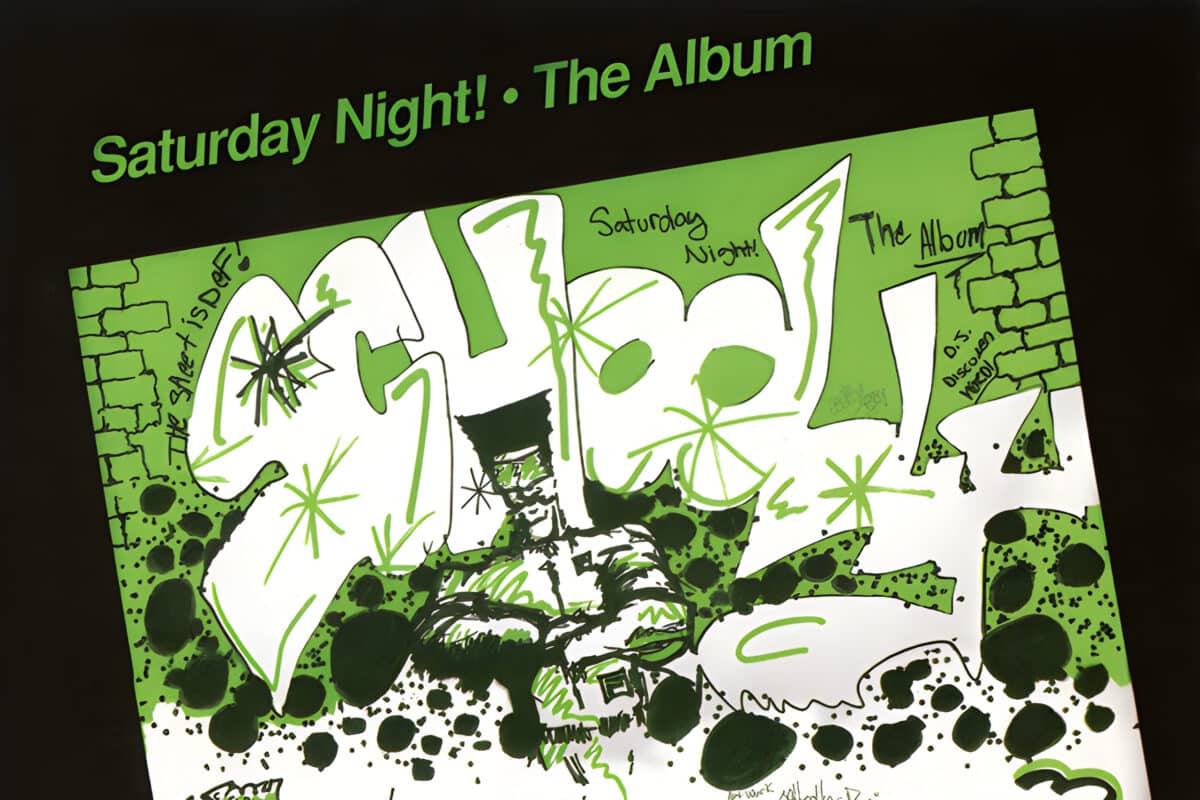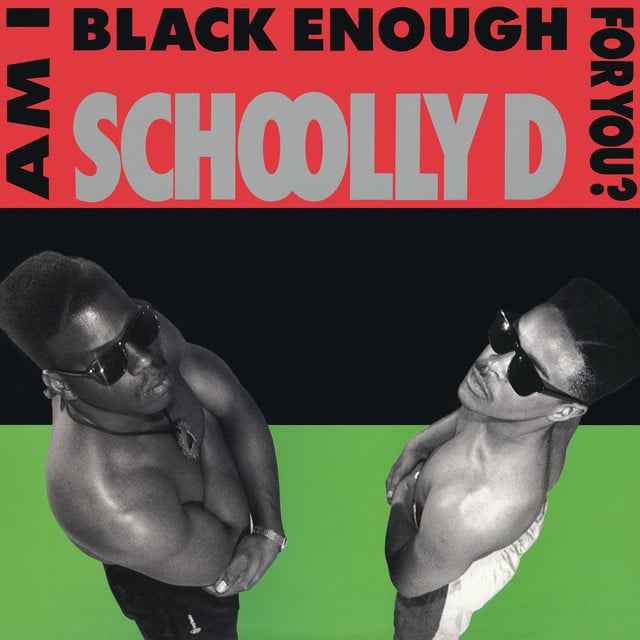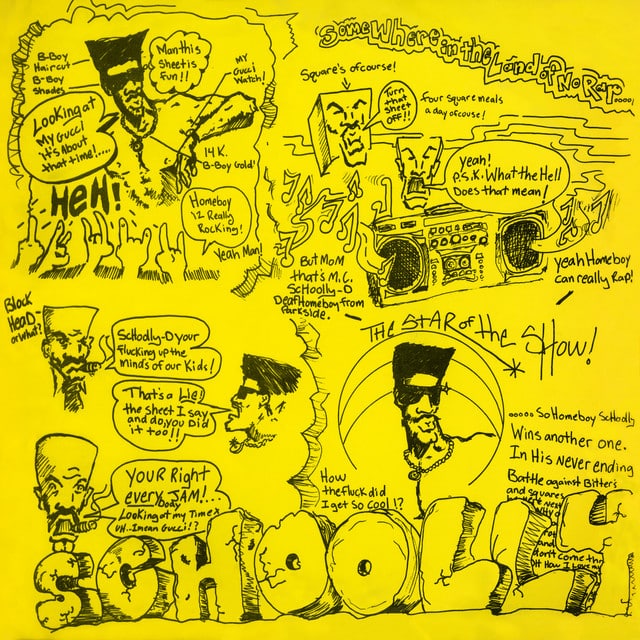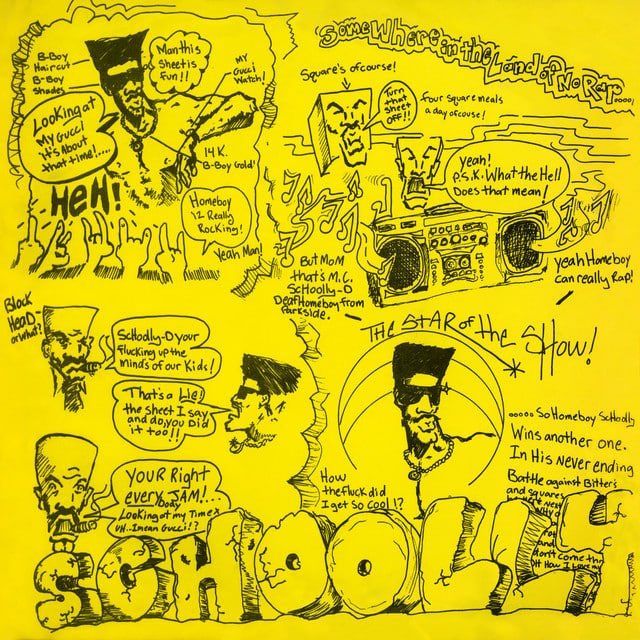Released: 1987
Schoolly D’s song “Housing the Joint” exudes an electrifying, in-your-face energy typical of late ’80s hip-hop, with its heavy basslines and raw lyrical delivery. The song celebrates Schoolly D’s command of the microphone and his capability to control the crowd, encapsulating the essence of a hip-hop show where the DJ and MC are symbiotically feeding off the energy of the audience. Its lyrics reflect the party culture of hip-hop and touch upon themes of authenticity, prowess, and respect in the game.
In the hook, Schoolly D repeatedly underscores his ability to “rock on to the break of dawn” while “housing the joint,” meaning he’s effectively owning the venue and leaving a memorable impression on the audience. “Housing” here refers to controlling and dominating the party scene, leaving little room for competitors. This dominance is a core tenet of the hip-hop ethos, where one’s skill on the mic or the turntables can make or break their reputation.
Schoolly D kicks off the first verse by positioning himself as an authoritative figure on stage. Holding the microphone, he’s no longer just an individual; he’s the ‘brother of this land,’ a representative voice of his community. There’s an implicit confrontation with those who accuse him of stealing styles, countered by Schoolly asserting that during those formative years, he was still a child, hinting at the growth and evolution of his own unique style.
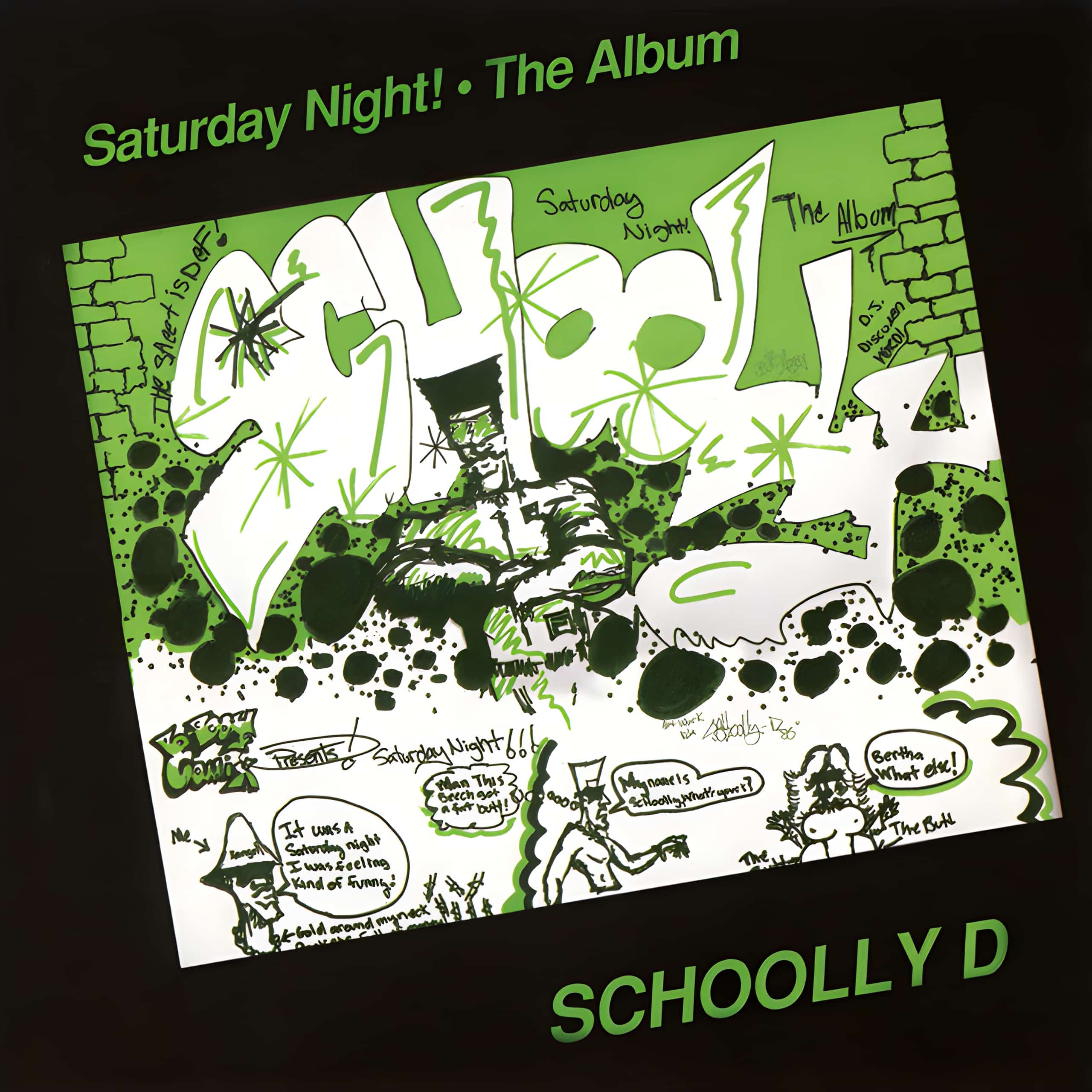
When he says “stop frontin’,” Schoolly D is challenging those who pretend or “front”—in other words, fake their credibility. The line “what is, is what ain’t, ain’t nuttin'” can be seen as a play on the paradox of being and perception in the rap game; it might all look a certain way, but not everything perceived is the reality. It’s about breaking past illusions and proving authenticity.
As the verse progresses, there’s a noticeable pride in his craft as he anticipates going a little “crazy” on stage, indicating an impassioned performance that teeters on the brink of chaos. “Cold Money,” presumably a DJ or producer he works with, complements this synergy. The energy here is tangible—it’s a high-wire act that holds the crowd’s attention until dawn.
The imagery of ‘jumping into the ride’ suggests a narrative continuity—a move from one place of action to another. Entering a venue feels like a battle ground, implied by “gonna be war,” which reflects the competitive and sometimes confrontational spirit of hip-hop battles. Schoolly D makes clear that his act leaves people craving more, commanding their respect through skill and presence.
Schoolly D’s allusion to “no racism, it’s just rhythm” offers a profound commentary on hip-hop as a unifying force transcending racial barriers. The idea that “people only dance to just what you give them” hints at the power an artist has over an audience—the responsibility to both entertain and provoke thought. It acknowledges that the craft can reach beyond divides.
In asserting “I’m not a toy, don’t call me boy,” Schoolly D tackles the derogatory perception sometimes placed upon black men in America. This line rejects dehumanizing and dismissive language. Instead, it’s a demand for respect, hinting at his identity and cultural struggles—revealing layers of defiance and resilience typical in the storytelling of hip-hop.
There’s an underlying defiance in lines like “you’re in my way, you will be destroyed.” Schoolly D reinforces his tenacity and relentless pursuit to stay on top. It’s not merely aggression; it’s about carving a niche and defending it. Such lines evoke the gritty realism of the streets, where the competition can be both literal and metaphorical, painting a picture of the hip-hop environment as an arena of combat and survival.
“Housing the Joint” encapsulates the hustle and artistry that define hip-hop culture. Schoolly D is synonymous with the rise of gangsta rap, bringing raw stories of urban life into mainstream consciousness during a transformative period in the genre. Through this song, listeners gain insight into the energy, charisma, and grit needed to make a mark in the industry, showcasing hip-hop’s power to elevate the voice of the marginalized. It’s an emblem of self-made success, resonating with authenticity and a flair for dramatic lyricism.
